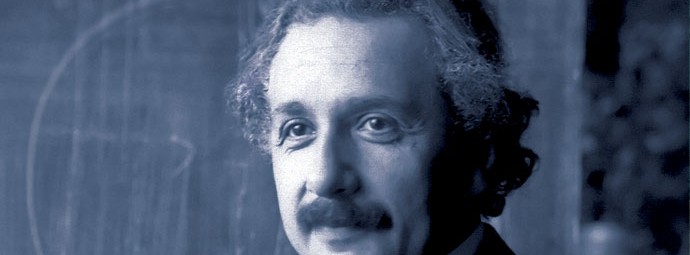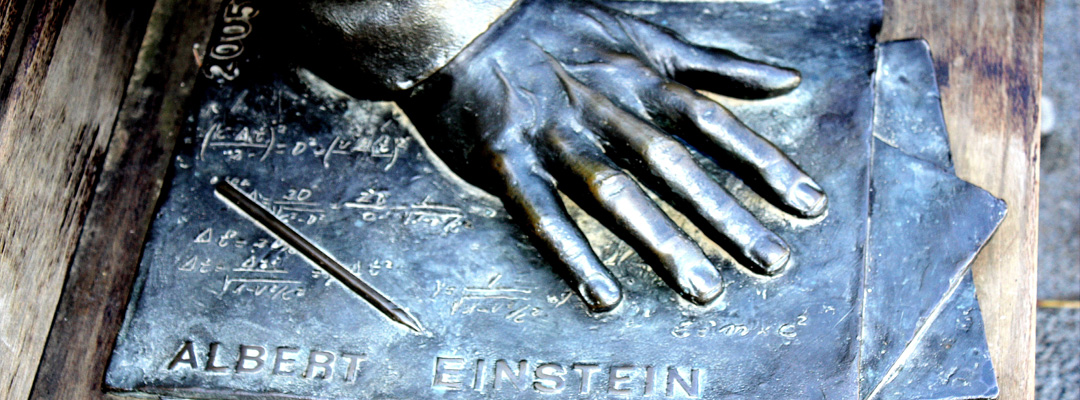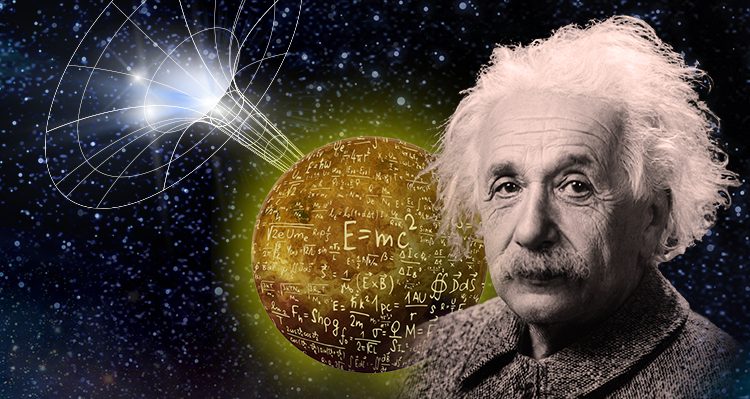Philosophy of Physics
John Norton: Approximation and Idealization
ABSTRACT This Rotman Lecture focuses on approximation and idealization, and how important the fact that only idealizations involve novel reference is when describing infinite limits, as in statistical mechanics. SPEAKER PROFILE John D. Norton studied chemical engineering at the University of New South Wales (1971-1974), then worked for two years as a technologist at the [...]
2014 Philosophy of Logic Math and Physics Graduate Student Conference
Join us for the fourteenth annual Philosophy of Logic, Math and Physics (LMP) graduate student conference in philosophy at Western University in London, Ontario, Canada. The LMP Graduate Student Conference will bring together philosophers of logic, mathematics, and physics for two days of presentations and discussions with some of the leaders in these fields. We [...]
Jean Bricmont: A Physicist Looks at Idealism and Relativism
Dr. David S.H. Chu International Student Centre International and Graduate Affairs Building, Western University, London, Ontario, CanadaABSTRACT Jean Bricmont, co-author with Alan Sokal of Intellectual Impostures: Postmodern Intellectuals’ Abuse of Science, will share his thoughts on idealism and relativism, from the perspective of a physicist. SPEAKER PROFILE Jean Bricmont is a Belgian theoretical physicist, philosopher of science and a professor at the Université Catholique de Louvain. He works on renormalization group [...]
Metaphysics Within and Without Physics: Annual Philosophy of Physics Conference
Room 1145 - Stevenson Hall Stevenson Hall, Room 1145, London, Ontario, Canada18th ANNUAL PHILOSOPHY OF PHYSICS CONFERENCE The Rotman Institute of Philosophy will devote the 2014 International Conference in the Philosophy of Physics on the relation between science and metaphysics. More specifically, the conference will bring together scientists and philosophers to address an important question about science and its cognitive aspirations: what is the relation between [...]
Karim Thébault: Confirmation Via Analogue Simulation: What Dumb Holes Could Tell Us About Gravity
ABSTRACT We argue for the existence of analogue simulation as a novel form of scientific inference with the potential to be confirmatory. This notion is distinct from the modes of analogical reasoning detailed in the literature, and draws inspiration from fluid dynamical ‘dumb hole’ analogues to gravitational black holes. For that case, which is considered [...]
Robert DiSalle: Gravity, Geometry, and Philosophy: 100 Years in Einstein’s Universe
Wolf Performance Hall - Central Library 251 Dundas St, London, Ontario, CanadaOne hundred years ago, in November 1915, Albert Einstein achieved his long-sought theory of gravitation: the General Theory of Relativity. In developing the General Theory, Einstein brought together ideas from philosophy, mathematics, and physics, to create a remarkable new conception of gravity, space, and time. His work is a model of the engagement between philosophy [...]
2015 Philosophy of Logic Math and Physics Graduate Student Conference
The fifteenth annual Philosophy of Logic, Math and Physics (LMP) Graduate Student Conference will take place June 4-5, 2015 at Western University in London, Ontario, Canada. The LMP Graduate Student Conference will bring together philosophers of logic, mathematics, and physics for two days of presentations and discussions with some of the leaders in these fields. [...]
Gravity and Geometry: Centenary Perspectives on General Relativity
2015 Annual Philosophy of Physics Conference Participants will present physical, philosophical, and historical reflections on Einstein’s theory of gravity and space-time geometry, its development over the past century, and its future prospects. The conference will include speakers: Kaća Bradonjić (Wellesley College) Carla Cederbaum (University of Tuebingen) Michael Friedman (Stanford University) Marco Giovanelli (Einstein Papers Project) [...]
Chris Smeenk: Einstein’s Path to a New Theory
Stevenson & Hunt Room A - Central Library 251 Dundas St, London, Ontario, CanadaABSTRACT In November 1915, Einstein published a new theory of gravity. This lecture recounts the “rough and winding road” Einstein took in developing his theory, which ended with a dramatic race to the finish. Einstein’s approach was philosophical, partially guided by conceptual puzzles regarding space and motion. We will consider recent critical assessments of Einstein’s [...]
Stathis Psillos: Engaging Philosophy: Einstein on the Method of Science
Stevenson & Hunt Room A - Central Library 251 Dundas St, London, Ontario, CanadaABSTRACT Albert Einstein said that scientists are poor philosophers. Yet, he added that especially in periods of scientific revolutions, scientists should engage in philosophy and should not “surrender to philosophers the critical contemplation of the theoretical foundations” of science. In this talk I will aim to critically examine Einstein’s views on the method of science [...]
Doreen Fraser: Einstein, God, Dice, and Quantum Mechanics
Stevenson & Hunt Room A - Central Library 251 Dundas St, London, Ontario, CanadaABSTRACT Einstein is best known for his contributions to the physics of spacetime, the Special and General Theories of Relativity. However, he also played an important role in the development of quantum mechanics, the other great theoretical advance in twentieth century physics. Einstein’s famous response to quantum mechanics was that “God does not play dice.” [...]
Wayne Myrvold: Einstein and the Atom
Stevenson & Hunt Room A - Central Library 251 Dundas St, London, Ontario, CanadaABSTRACT Einstein's name is widely associated with the "atom bomb," via the formula E = MC2. Less widely known is that he played a key role in providing evidence that atoms exist at all. One of Einstein's early papers was an analysis of Brownian motion, the ceaseless dance of tiny particles, such as pollen grains, [...]
Chris Smeenk: Einstein’s Universe (Classes Without Quizzes)
Stevenson & Hunt Room A - Central Library 251 Dundas St, London, Ontario, CanadaThis lecture is part of the free public lecture series, Classes Without Quizzes, co-sponsored by Western Alumni and the London Public Library. ABSTRACT Einstein developed his theory of general relativity 100 years ago. Join philosophy professor Chris Smeenk for an exploration of Einstein’s distinctively philosophical approach to physics, and how his ideas have shaped our [...]
Einstein: Philosopher | Scientist, 100 years of General Relativity
SATELLiTE Project Space 121 Dundas St, London, Ontario, CanadaEXHIBIT DESCRIPTION Explore the genius of Einstein through a uniquely philosophical lens. On the centennial of Einstein solving the puzzle of General Relativity, this interactive exhibit delves into the philosophical groundwork that informed Einstein’s approach to science. Manuscript replicas (Courtesy of the Albert Einstein Archives, the Hebrew University of Jerusalem, Israel.) illustrate in detail Einstein’s [...]
Alastair Wilson: Emergent Contingency
Room 1145 - Stevenson Hall Stevenson Hall, Room 1145, London, Ontario, CanadaABSTRACT I begin by distinguishing between two conceptions of what needs explaining in modal metaphysics - necessity or contingency - and arguing that we should take seriously the neglected 'necessity-first' perspective. Then I illustrate how this perspective might work by offering a radical new theory of modality based on Everettian quantum mechanics (EQM), otherwise known [...]













